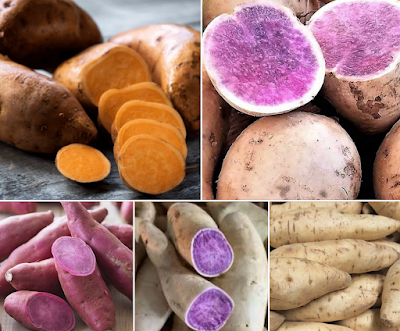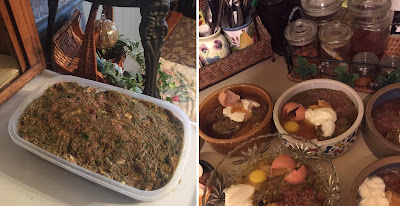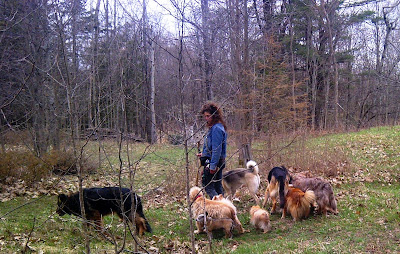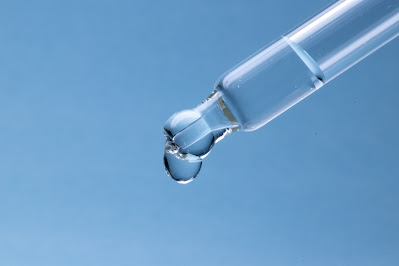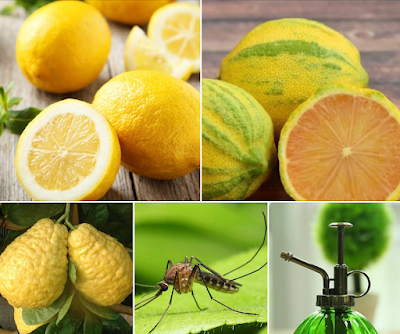Sweet Potato, Potato and Yam Are Not Good for Your Dog and Cat
★ 4 min read
In this article:
- Sweet Potato, Potato, Yam and Jicama
- Glycemic Index of Sweet Potato, Potato and Yam
- Glycemic Load of Sweet Potato, Potato and Yam
- No Sweet Potato, No Potato, No Yam, No Jicama
- Dogs and Cats Have Evolved to Thrive On a Species Appropriate Diet
- Starchy Carbohydrates Cause and Contribute to Health Issues and Chronic Conditions
- Never Include These Foods In Your Dog and Cat's Diet
- Species Appropriate Alternatives to Sweet Potato, Potato, Yam and Jicama
- Species Appropriate Greens, Vegetables, Herbs, Fruit, Nuts and Seeds for Dogs
- Species Appropriate Herbs for Cats
1.0 Sweet Potato, Potato, Yam and Jicam
Sweet potato, potato, yam and jicama are not good
for dogs and cats. These starchy root vegetables cause and contribute to a wide range of health issues for dogs and cats.
Your dog and cat may experience immediate
symptoms of hypersensitivity to starchy root vegetables. But for most dogs and cats,
health issues from consuming these starchy roots, develop over time. How and when adverse effects surface depends
on your dog and cat’s overall circumstances.
Sweet potato, yam or jicama are not better than
potato for your dog and cat. Dogs and cats can consume high glycemic
index, and glycemic load foods
such as sweet potatoes, yams and potatoes. But
dogs and cats do not thrive on these foods.
So how about jicama? Jicama is lower in starch content and has a lower glycemic load than
potato, sweet potato and yam. However. jicama is a starchy root vegetable - and like the other three root vegetables (potato, sweet potato and yam), the starch in jicama causes health issues in dogs and cats.
Many pet guardians are aware that potato is
not a good choice for their pet. But sweet potato and yam are still popular.
Why?
There's a misconception that sweet potato
and yam are lower glycemic foods than potato. This misconception is harming dogs and cats. To set the record straight and resolve this harmful misconception, we need to talk about glycemic
index and glycemic load.
2.0 Glycemic Index of Sweet Potato, Potato and Yam
The glycemic index (GI) measures the blood-glucose
rating of carbohydrate content foods. Pure glucose is the baseline to compare
how other foods effect blood-glucose level.
High GI foods cause a rapid spike in blood
glucose followed by a quick decline in blood glucose. The rapid spike in blood
glucose forces the pancreas to increase insulin secretion.
- Increased demand to produce insulin burdens
the pancreas.
- High GI food doesn’t provide sustainable
energy.
- The short-term effect is hunger and poor
energy levels.
- The long-term effect is a heightened risk of
inflammatory issues and disease.
Low GI foods don't place a heavy burden on the
pancreas. As well, low GI foods help the body sustain energy levels. Let's see how sweet potato, potato and yam compare on the glycemic index.
Sweet potato
Baked for 45 minutes - high GI
Boiled for 30 minutes - low GI
Potato
Baked for 45 minutes - high GI.
Boiled for 30 minutes - high GI.
Yam
Baked for 45 minutes - high GI.
Boiled for 35 minutes - high GI.
The only low GI option is a boiled sweet
potato. BUT that boiled sweet potato isn’t good for your dog or cat. Why?
Because glycemic load is more important than glycemic index. This is the
crucial point many people aren’t aware of.
We need to talk about glycemic load.
3.0 Glycemic Load of Sweet Potato, Potato and Yam
Glycemic Load (GL) measures the carbohydrate
in a food.
Potato, sweet potato and yam are high
glycemic load foods. The adverse effects of these root veggies on the body are
similar to:
- Grains: barley, corn, oatmeal, rice, etc.
- Pulses: peanuts (and peanut butter), chick peas, lentils, navy
beans, soy beans, etc. See the complete list here.
High glycemic load foods cause inflammatory
response in your dog and cat’s body.
4.0 No Sweet Potato, No Potato, No Yam, No Jicama
4.1 Dogs and Cats Have Evolved to Thrive On
Dog and cats have evolved to thrive on a species appropriate diet consisting of:
- Animal protein: muscle meat, organ from e.g. small prey, poultry, fish and eggs, etc.
- Bone and other sources of calcium such as eggshell.
- Healthy Fats.
- A small amount of appropriate plant material with a low glycemic load as discussed in section 5.0 further below.
Many made for pet diets include starchy root vegetables, grains, beans, starchy seeds. However, these diets are health damaging for dogs and cats.
Find out how to create a species appropriate raw diet for your dog and cat.
- Go to this article.
4.2 Starchy Carbohydrates Cause and Contribute to Health Issues and Chronic Conditions
A partial list of health issues and conditions:
- Allergies
- Arthritis
- Cancer
- Diabetes (Type 2)
- Gall bladder issues
- Gastrointestinal issues and diseases
- Heart disease (cardiovascular disease)
- Immune system disruption
- Kidney issues
- Liver issues
- Metabolic disease
- Oral health issues and disease (e.g. gingivitis, plaque, periodontal disease)
- Pancreatitis
- Other inflammatory issues, autoimmune issues and chronic disease
Protect your dog and cat’s long-term health.
4.3 Never Include These Foods in Your Dog and Cat's Diet:
The starchy carbohydrates below, should NEVER be included in your dog and cat's diet.
1. Jicama, Sweet Potato, Potato, Yams.
- Appropriate alternatives are discussed below.
2. Beans (e.g. chickpeas,green peas, lentils, navy beans, soy bean, etc.).
- Learn more, go to this article.
3. Grains (e.g. corn, oatmeal, rice, etc.) and Starchy Seeds.
- Learn more, go to this article.
5.0 Species Appropriate Alternatives to Sweet Potato,
Potato, Yam and Jicama
5.1 Species Appropriate Greens, Vegetables, Herbs, Fruit, Seeds and Nuts for Dogs
Dogs benefit from antioxidants, fibre, vitamins, and minerals obtained from species appropriate plant material.
For more information:
- An extensive list of dog-appropraite plant materials (greens, vegetables, fruit, etc.)
- How to properly prepare plant materials.
- How much to include in the diet.
Go to this article.
5.2 Species Appropriate Herbs For Cats
Cats are obligate carnivores.
Cats don't need nor thrive on vegetables or fruit in their diet.
A small amount of herbs and nutraceuticals can be beneficial for cats when selected to suit the individual cat's requirements.
For examples of appropriate plant materials (herbs) for cats:
- Go to this article.
Holistic Diet, Nutrition, Wellness Services Tailored to Your Individual Dog and Cat
For information about my holistic diet, nutrition, wellness services visit my:
Maintain good health | Address acute and chronic health issues | Pre and post surgery support and recovery
My holistic wellness services are available worldwide via video consultation.
🌎 USA | Canada | UK | Europe | Australia | New Zealand | Asia | South and Central America | Africa | UAE
📱 FaceTime | Facebook | Skype | WhatsApp
Holistic Behavioral Services For Your Dog
For information about my holistic behavioral services visit my:
For dogs of all ages, sizes and breeds
My holistic behavioral services are available locally in-person and worldwide via video session.
🌎 USA | Canada | UK | Europe | Australia | New Zealand | Asia | South and Central America | Africa | UAE
📱 FaceTime | Facebook | Skype | WhatsApp
Affiliations to Companies
✓ None.
✓ I don't sell food or supplements.
✓ I'm not aligned with any companies.
✓ None.
✓ I don't sell food or supplements.
✓ I'm not aligned with any companies.
Article and graphics by Karen Rosenfeld

